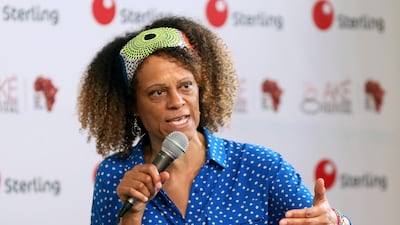Booker Prize winner Bernardine Evaristo is writing her first non-fiction book, Manifesto, a memoir detailing her personal and literary journey over 40 years.
The memoir is part of a recent three-book deal between the author, who became the first black woman to win the Booker Prize in 2019, and Hamish Hamilton. As part of the deal, Evaristo is also signed for a new novel and debut short story collection, according to The Bookseller.
Manifesto, scheduled for release in October, will trace Evaristo's experiences, touching on issues of race, class and gender, and her path towards success.
"It's been in the works for quite a while," the author told The Guardian. "I wanted to write a non-fiction book that looks at how my life and my background and my politics has shaped my creativity and brought me to this place in my career. It's a great place to be, but it's been a very long journey, over 40 years. This felt like the right time, having reached this position as a writer, to reflect back on how I got here."
She added: “I want it to be for the general reader – including people in the arts, but for anyone who’s interested in looking at how we create the lives we want for ourselves, which might mean breaking with convention and tradition …”
It was Evaristo's eighth novel, 2019's Girl, Woman, Other, that earned her multiple accolades and praise from figures such as former US president Barack Obama and writer Roxane Gay.
In a statement, Hamish Hamilton publishing director Simon Prosser described the author’s Booker win as “a revolutionary moment for British culture”.
He added: “After over three decades as a trailblazing writer, teacher and activist, she moved from the margins to centre stage, taking her place in the spotlight at last. Her journey was a long one, but she made it, and she made history.”
Appearing at the Hay Festival Abu Dhabi in February 2020, Evaristo spoke about the visibility of non-white figures not just in the literary scene, but in mainstream culture.
“Growing up in the 1970s and '80s, we felt very isolated from the mainstream. There were no representations of women of colour,” she said during a discussion. “Society may have changed recently to embrace diverse voices and promote inclusivity, but we were still fighting to be included then.”
Nielsen BookScan estimates that more than a quarter of a million copies of the Girl, Woman, Other paperback have been sold so far.
The launch of Manifesto will be marked by a live event at London's Southbank Centre in October, which will include a discussion with Evaristo about the new book. Tickets for the event will go on sale in early July.



